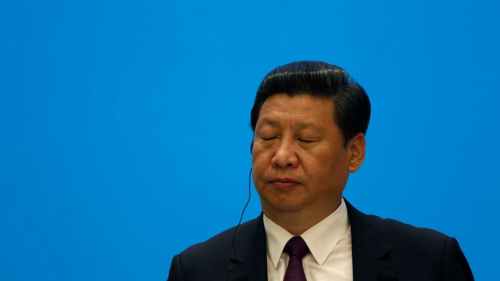This week, we recommit to ensuring that global trade reflects America’s highest values: fairness, transparency, innovation, dignity, and opportunity for American workers, American businesses, and American families.
For decades, our country embraced trickle-down economics which rewarded wealth, not work. Companies took their jobs overseas to get cheaper labor. Factories closed down. Manufacturing slowed. Entire communities became hollowed out as American workers lost their paychecks and sense of pride.
My Administration is changing that. Since I came into office, we have focused on rebuilding our economy from the bottom up and middle out — not the top down. We have seen the results: We have created over 15 million jobs since I took office, including nearly 800,000 manufacturing jobs. Unemployment has been at under 4 percent for more than 2 years for the first time in more than 6 decades. A record 17 million Americans are starting small businesses. As a result of investments during my Administration, factories are coming back, producing everything from semiconductors to clean energy technology here at home. We have launched over 56,000 infrastructure projects across the country — rebuilding our Nation’s roads, highways, bridges, railroads, ports, airports, and so much more.
As we rebuild at home, we are also ensuring American workers and businesses have a fair shot abroad. Together with 13 nations across the Indo-Pacific, we are creating a new Economic Framework that will strengthen our supply chains, raise labor standards, advance our clean energy transition, and combat the corruption that too often robs workers of a fair share of the value they create. I am taking action to protect American workers and businesses from China’s unfair trade practices and ensure they compete on a level playing field, including increasing tariffs on $18 billion of imports from China to protect American workers and businesses. At the same time, we are working to increase trade with Kenya, Taiwan, and other partners around the world.
No region impacts the economic security of the United States more directly than the Western Hemisphere. Together with 11 partners, we have launched the Americas Partnership for Economic Prosperity to build more resilient supply chains, mobilize high-standard investments in our partners’ economies, and ensure that trade-enabled growth means inclusive growth across all of our nations. My Administration is helping to better protect workers’ rights, end unfair labor practices, and support free and fair union elections. For example, through the Partnership for Workers’ Rights we launched with Brazil, we are taking collective action to promote workers’ empowerment and end violations of workers’ rights, which is key to achieving sustainable economic growth.
My Administration has launched historic trade initiatives with the European Union to promote clean manufacturing and create new jobs on both sides of the Atlantic. For example, through the Global Arrangement on Sustainable Steel and Aluminum, we are partnering to tackle non-market excess capacity and emissions intensity in the steel and aluminum sectors, which threaten the competitiveness of our workers and producers. Together, we created the U.S.-E.U. Trade and Technology Council that has deepened our cooperation on sustainable, high-standard trade.
The United States is also working with our partners to combat non-market policies and practices and structural overcapacity that distort global markets, create unfair competitive advantages, and lead to dependencies that make us vulnerable to coercion. From the G7 to our partnerships with developing countries and our engagement at the WTO, we are working across the board to protect our workers, industries, and economic security.
As my Administration takes these steps, American workers will remain front of mind. Through the first-ever Presidential Memorandum on Advancing Worker Empowerment, Rights, and High Labor Standards Globally, my Administration is making workers’ rights central to all of our international economic partnerships and diplomacy, ensuring that workers get the dignity and opportunity they deserve. We are working to expand trade opportunities for communities that have too often been left behind — including helping small businesses compete in international markets through our new National Export Strategy and making it easier for small and medium sized businesses to access loans from the Export-Import Bank of the United States. The Department of Commerce launched a Global Diversity Export Initiative to help minority-owned businesses overcome barriers to entering international trade.
All across our country, American workers are writing the greatest comeback story our Nation has ever known. This week and every week, my Administration recommits to ensuring our trade supports them, protects them, and helps forge a better future for our Nation — one where no one is left behind and everyone gets a fair shot.
NOW, THEREFORE, I, JOSEPH R. BIDEN JR., President of the United States of America, by virtue of the authority vested in me by the Constitution and the laws of the United States, do hereby proclaim May 19 through May 25, 2024, as World Trade Week. I call upon all Americans to observe this week and to celebrate with appropriate programs, ceremonies, and activities.
IN WITNESS WHEREOF, I have hereunto set my hand this seventeenth day of May, in the year of our Lord two thousand twenty-four, and of the Independence of the United States of America the two hundred and forty-eighth.
JOSEPH R. BIDEN JR.




